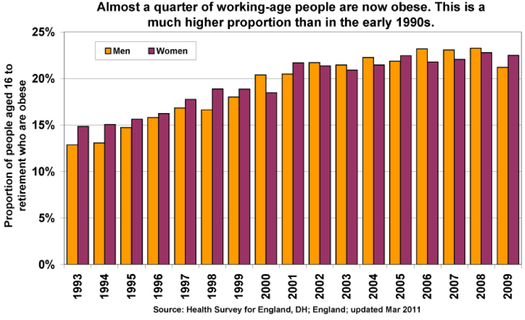|
I was born in the late 80’s, which meant the food pyramid has dominated my entire life. I personally don’t remember when I was taught that 7-9 servings of grains were best for me, but I always remember fat being bad for you. I spent the first 23 years of my life eating by these standards, and I’ll spend the rest of it helping educate people about how to really eat for their health and wellness. Now, it’s not all down to the food pyramid (FP) and the dietary guidelines (DG), the diet culture (DC) and diet companies hold some responsibility too, both of which hit the south Wales Valleys hard during my early years. But, since the DC fed into FP and DG ethos, the compounding effects were disastrous as their popularity and authority grew. What went wrong? It’s best to start at the beginning here, with its origin. The food pyramid was created by the Swedes to ‘develop the idea of "basic foods”, that were both cheap and nutritious’ due to the high food prices they were experiencing in 1972. But, it wasn’t solely about giving nutritional advice. The he US adopted it in 1992 to try and help American’s navigate a healthy diet (now it became about solely giving nutritional advice). Then, as any younger sibling who’s trying to impress their older one would do, the UK followed suit 2 years later, and we’ve all suffered ever since. Because the American’s were hell bent on demonising saturated fats, after being led to believe by flawed and biased science, that these fats were the cause for coronary heart disease and weight gain, the food pyramid reflected this and thus began the low-fat craze. Dr Ancel Keys, the man we have to thank for this mis- and flawed information, has since seen his famous study (the 7-country study) dispelled, as we later learned that the countries which were selected, were ‘cherry picked’ to support a desired outcome – saturated fats are bad. Unfortunately, nothing has changed and we’re still being led to believe the same; low-fat is bad and eat 7-9 servings of grains are good, even though many know differently: “These guidelines are hugely influential, affecting diets and health around the world. The least we would expect is that they be based on the best available science. Instead the committee has abandoned standard methodology, leaving us with the same dietary advice as before – low fat, high carbs. Growing evidence suggests that this advice is driving rather than solving the current epidemics of obesity and type 2 diabetes. The committee’s conflicts of interest are also a concern. We urgently need an independent review of the evidence and new thinking about diet and its role in public health.” —Dr Fiona Godlee, Editor in Chief, The British Medical Journal The BMJ, September 24, 2015. But, I don’t follow the guidelines Most aren’t following the FP and DG with 100% accuracy, but you don’t need to in order to be influenced by them. Your eating preference will determine your outcome more so than the quantity you’re eating, especially in our current state of over-feeding on high carbohydrate, high sugar, highly processed and low-quality foods. We personally prefer not calorie count as we understand there's more to story, but the food pyramid's influence is undeniable, and therefore a great place to start. Check out the graph below, Today (2019), more than 6/10 adults are overweight or obese in the UK according to www.cancerresearchuk.org. Granted what we eat isn’t the only thing which has contribute to the above, but as we mentioned it's a great place to start when you're looking to begin improving your overall health and managing your weight. What’s is worrying however, is the simple fact that most aren’t willing try something different, and keep following the same old advice in hope of eventually “getting it right”. “Insanity: doing the same thing over and over again and expecting different results.” – Albert Einstein. I’d love to know what you think. Speak soon, JC
0 Comments
Leave a Reply. |
AuthorsJC and The Nutri-Team Archives
November 2020
Categories
All
|


 RSS Feed
RSS Feed
